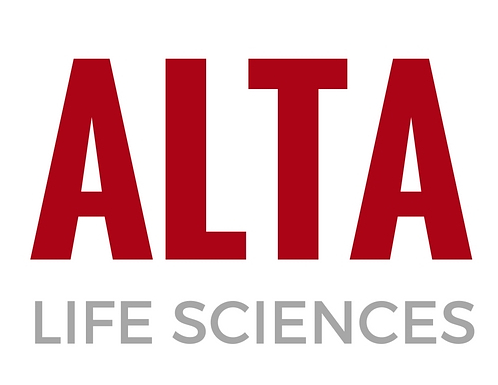• Level 1 evidence from the MAF Test ®analyses of the NSABP-B34 landmark clinical trial confirmed clinical utility of the MAF Test ® for selection of early-stage breast cancer patients that benefit from adjuvant clodronate treatment to prevent metastasis.
• Data published in Journal of National Cancer Institute, Cancer Spectrum.
• MAF negative status of patients who were treated with clodronate in the adjuvant setting was predictive of significantly improved disease-free survival (primary endpoint) and overall survival (key secondary endpoint).
• Results confirm the company’s previous data (AZURE trial analyses) on its proprietary MAF Test ® published in Lancet Oncology in 2018.
Barcelona, September 28, 2021 – Inbiomotion SL, a company developing a unique single-genebased biomarker for the personalized adjuvant treatment of early-stage (stage I-III) breast cancer patients, today announced the publication of the results of the prospectively-planned, retrospective analysis of clinical outcome data from the Phase 3 NSABP-B-34 study in Journal of the National Cancer Institute, Cancer Spectrum. The data shows that in patients with MAF-negative tumors (determined with Inbiomotion’s proprietary MAF Test® ), adjuvant treatment with clodronate was associated with a significant benefit in overall survival compared to placebo-treated control patients receiving the same standard of care.
More specifically, the results from this study show that, independent of menopausal status, in patients with MAF-negative tumors who were treated with clodronate, disease-free survival improved by 30% (HRDFS = 0.70, (95% CI 0.51-0.94), p=0.02) and risk of death was 41% lower than in untreated patients (HROS = 0.59, (95% CI 0.37-0.93), p=0.02), whereas patients who had MAFpositive tumors had no benefit from clodronate treatment. The deaths at 5 years in MAF-negative patients were reduced by 35% with clodronate adjuvant treatment. The clinical benefit in overall survival was maintained during the 9 years of follow-up. MAF-negative patients who benefited from clodronate adjuvant treatment in this study represented around 80% of all breast cancer patients.
Currently, clodronate and other bisphosphonates are not approved by the regulatory agencies for use in adjuvant treatment of early-stage breast cancer patients. However, they are recommended in the ASCO/CCO and ESMO guidance for clinical practice for adjuvant treatment of breast cancer of postmenopausal patients. This study shows that identifying MAF-negative patients could give more patients, particularly younger patients, the opportunity to benefit from adjuvant bisphosphonates, while avoiding potential harm (or no benefit), than solely using menopausal status as a selection criterion.
“Our results indicate that adjuvant clodronate treatment has clinical benefit which is restricted to MAF-negative patients. The assessment of MAF status has the potential to become an objective approach to the selection of breast cancer patients for adjuvant clodronate treatment, improving the clinical outcome of the patients”, said Prof. Alexander Paterson, principal investigator of the NSABP-B34 clinical trial and Emeritus Clinical Professor at the Department of Oncology, University of Calgary. “These data confirm a very significant advance over the last 20 years using a simple treatment with minimal toxicity”.
“This study confirms our previous findings and the clinical utility of MAF Test ® as a unique tool for precision medicine in early breast cancer. Over 700,000 early-stage breast cancer patients in Europe and US are diagnosed every year and improving their treatment options through precision medicine is an important goal”, said Joël Jean-Mairet, Executive Chairman of the Board of Inbiomotion. “The data indicate that around 15,000 lives could be saved annually in Europe and US”.
“We have previously shown overall survival benefit of adjuvant bisphosphonate treatment of MAFnegative patients identified with the MAF Test ® using tumor samples from the AZURE clinical trial, another landmark trial in early-stage breast cancer”, said Prof. Roger Gomis, ICREA Research Professor at IRB Barcelona. “MAF as a biomarker explains for the first time the association between using bone-modifying agents in the adjuvant setting and patient outcome”.
“The results of the NASBP-B34 MAF study validate an important earlier finding that bisphosphonates are differentially beneficial in treating a subset of breast cancer patients with MAFnegative tumors. Hence, our confirmatory results potentially give clinicians a new tool to effectively target a patient population for whom clodronate will have an efficacious impact”, said Stewart J. Anderson, Professor Emeritus of Biostatistics at University of Pittsburgh and lead statistician of the NSABP-B34 clinical trial.
Reference article:
MAF Amplification and Adjuvant Clodronate Outcomes in Early-Stage Breast Cancer in NSABP B-34 and Potential Impact on Clinical Practice
Alexander H G Paterson, MD, Peter C Lucas, MD, Stewart J Anderson, PhD, Eleftherios P Mamounas, MD PhD, Adam Brufsky, MD, PhD, Luis Baez-Diaz, MD, Karen M King, MD, Thomas Lad, MD, André Robidoux, MD, Melanie Finnigan, BSc, Miguel Sampayo, PhD, Juan Carlos Tercero, PhD, Joël Jean Mairet, PhD, Antonio C Wolff, MD, Louis Fehrenbacher, MD, Norman Wolmark, Roger R Gomis, PhD.
Full text article: LINK
ENDS
About Inbiomotion:
Inbiomotion SL, a company founded by Prof. Roger Gomis, is developing a unique single genebased biomarker for the personalized adjuvant treatment of early-stage breast cancer patients. The biomarker has been technically and analytically validated. The results of the first trial using well annotated archived specimens of the AZURE registrational clinical trial, now confirmed in the NSABP-B34 trial, indicate its potential use as a companion diagnostic. The company holds over 190 patents and patent applications covering its proprietary FISH MAF Test ® and the use of bisphosphonates in the adjuvant treatment of early-stage breast cancer patients.
About NSABP-B34 clinical trial:
NSABP-B34 was a randomized, double-blind, placebo-controlled study that recruited 3311 patients from January 2001 to March 2004 to determine the effectiveness of clodronate with or without chemotherapy and/or hormonal therapy in preventing metastases in women who had stage I-III breast cancer. Patients were stratified by age (under 50 vs 50 and over), number of positive lymph nodes (0 vs 1-3 vs 4 or more), and hormone receptor status (estrogen receptor [ER] and progesterone receptor [PR] negative vs ER and/or PR positive). Patients were randomized to placebo or 1600 mg oral clodronate per day and continued treatment for 3 years in the absence of bone metastasis or unacceptable toxicity. Patients in both arms could also receive adjuvant chemotherapy and/or tamoxifen at the discretion of the protocol investigator. Patients receiving hormonal therapy began hormonal therapy within 3-12 weeks after the last dose of chemotherapy and continued for a minimum of 5 years. The primary endpoint of the study was disease free survival. Secondary endpoints included overall survival and bone and non-bone metastasis.
About MAF:
MAF (mesenchymal aponeurotic fibrosarcoma gene, an AP-1 family transcription factor) is expressed in primary cancer tumors. This is associated with increased metastasis, especially bone metastasis. MAF transcriptionally controls genes such as CD36 and PTHrP, which regulate metastasis-related cellular processes, including survival, initiation, metabolic rewiring, and particularly, adhesion to bone marrow–derived cells and osteoclast differentiation. These observations point to MAF having a key hierarchical role in metastasis.
Contact:
Joël Jean-Mairet, PhD
jjean-mairet@inbiomotion.com
www.inbiomotion.com

